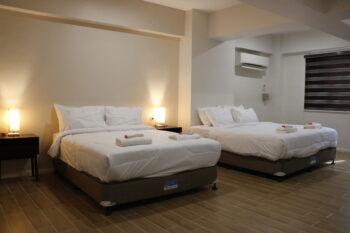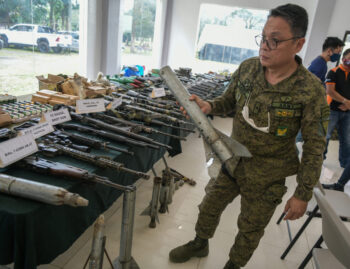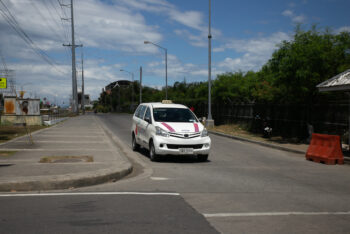SPECIAL TO MINDANEWS
VATICAN (MindaNews/11 January) — Who would have thought that I would be able to see the Vatican, the seat of the institution that is the Catholic Church. Who would have thought that I, who grew up in the middle of a rice field near my hometown’s public cemetery in Mindanao, would be able to see the crypts of bishops and popes of ages past. Who would have thought that I would be able to take a journey with a Pope from the Vatican to the Philippines and back?
The thought never once crossed my mind even in my dreams. I once could not even imagine a world beyond the mountains surrounding Dapitan in the Zamboanga peninsula where I was born, where I grew up, and where I learned how to drink, dance, and be merry. I never thought then, before the age of the Internet and mobile phones, when the world was greener and the nights darker, that I would be able to take a plane ride.
Then one day, a lanky Claretian missionary came to town and talked about the poor, justice, serving God and society, and bus, boat, and plane rides. It was a temptation that was difficult to resist. I left my hometown and met Plato, Aristotle, Thomas Aquinas in the dusty corners of the university along Espana Avenue in Manila. It was a time of dreams, a time of idealism, a time of talks about God and country.
Still, Rome was a distant land, the Vatican only an idea, the pPope a picture on the wall a few inches below the images of Jesus, Mary, and Saint Anthony Mary Claret. I turned to books and magazines, and later on television to discover a wider world, a world beyond the walls of the seminary, beyond the confines of our little chapel, and the halls of the university.
I discovered more of the world when I started to discover journalism. I learned that being a witness to what is happening around me could lead me to a wider horizon beyond the reach of people who labor to survive every minute of the day. I learned that by sharing to others what I see, hear, and feel, they would send me to where they would not dare go. They wanted to hear stories about other people, maybe to be assured that there is no such thing as an exclusive experience, that poverty is the same whether in Mindanao or in the south of Thailand, that piety is the same in Quiapo and in St. Peter’s Square.
And because of the stories I heard, and the way that I tell it, that I was able to have the chance to take a front seat to events. It is no easy job. It is a task no less difficult than being a missionary. One has to leave family, friends and loved ones and walk the unfamiliar streets of other worlds sometimes with little or no resources at all.
Here in Rome, I am staying in a small apartment five minutes away from where Pope Francis is staying. I can see the dome of St Peter’s Basilica from my window. But I don’t have the time to stare out. I have to shut the windows tight to prevent the cold from getting in the room. It’s no vacation either. Everything is expensive. A bottle of water can cost about 4 euros, that is about 200 pesos. And even if you have the money to buy, there are no open stores after nine in the evening.
Then you have to walk, and walk, and walk, not only to save on fare but also because the train stations and bus stops are difficult to find, especially for first timers like me. Forget about getting a taxi. It’s just unaffordable for us ordinary mortals. Food, too, is expensive compared to what we are used to back home. A dinner of 10 euros is just too expensive for one who is used to eating in a carenderia.
But then again, who would have thought that I would be taking the same plane with the Pope, and might even have a chance to have a “selfie” with him. Friends and relatives have been asking for rosaries blessed by the Pope as “pasalubong” as if it’s that easy. With all the friends and relatives I have, how many bags of rosaries should I carry? I still have to bring three cameras in a bag and a laptop computer and some other gadgets in another.
Again, that is not the biggest challenge. The challenge is how to write a story that matters. How can I bring to the attention of the world, and the Pope, the aspirations and the cries of the people back home. Will I be given the chance to tell the Pope, and the world’s media who will be traveling with him, that people back home in Mindanao have been aspiring and working for peace amid the seemingly endless conflicts, that climate change is as real as the poor farmers who lose their homes to the rains and floods from denuded and mined mountains?
Ah, but hope is a Christian value taught to us by the likes of Fr Angel Calvo of PAZ in Zamboanga. It is my hope then to be able to say in the coming days that I have never thought that people in Mindanao were able to work for justice and bring about peace even without the Pope a-visiting. I would love to write one of these days how Pope Francis would bless the peoples of Mindanao for being a church of the poor and for the poor, a witnessing community whose life is rooted on justice, peace and integrity of creation.
I will keep you updated on the Pope’s trip. But what I hope is that through you, and your work on the ground, the Pope would be updated on how a church that he leads gives life to his message of mercy and compassion. (Jose “Joe’ Torres, is bureau chief of the Union of Catholic Asian News in Manila. Torres is from Dapitan City in Mindanao)







